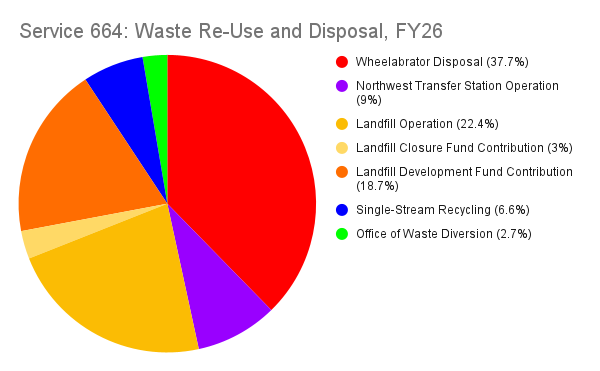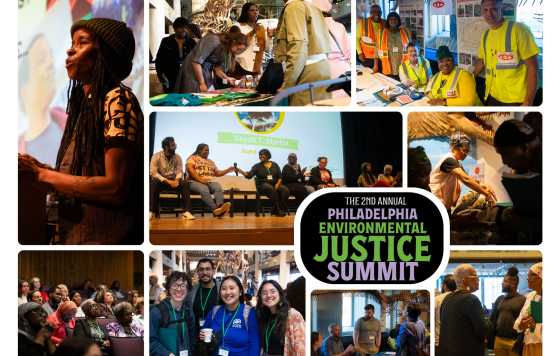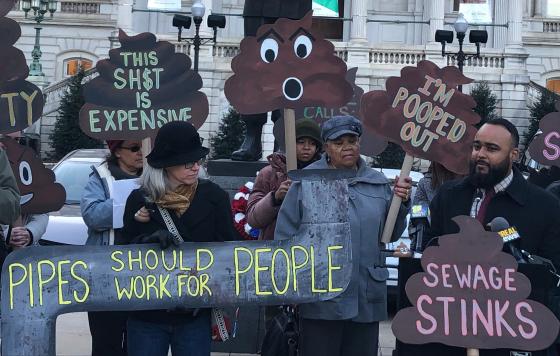
Today, the Baltimore City Council holds its annual public hearing on the Mayor's proposed budget, known as Taxpayers' Night. This proposed budget fails to invest in Zero Waste, and we're advocating that the City Council amend the budget to recognize the new revenue it includes that was demanded by South Baltimore Land Trust in their Civil Right Act Title VI complaint, and invest those funds in Zero Waste programs that DPW has requested funding for but were not included in the budget. Read the introduction below, and download the full budget comments here!
Testimony on Solid Waste Management and Zero Waste in
Baltimore City’s Fiscal Year 2026 Proposed Budget
In the five years since Baltimore signed a new contract with the BRESCO trash incinerator to send waste to the incinerator between 2021-2031, City leaders have made many commitments to Zero Waste. Upon the signing of the new contract in 2020, then-Council-President Scott said, “Under my administration, we’re going to work to not burn as much at the incinerator as possible... And I will work my butt off to make sure that this is the last time we ever give them a new contract.” Upon taking office, Mayor Scott promised that his administration would “Reduce chronic health disparities across racial and ethnic groups by decommissioning the use of waste incineration within the next decade” in his First Term Action Plan.
The Less Waste Better Baltimore Master Plan (LWBB), also adopted in 2020, outlined programmatic and infrastructure investments the City could make to reduce waste and divert it from the incinerator to reduce pollution and create local jobs. The Plan projected that Baltimore could achieve its Maximum Diversion Potential (increasing the overall diversion rate for all waste in Baltimore from 45% to about 83%) over a timespan of 20 years of investment, but noted that achieving this maximum diversion potential sooner was within the City’s grasp: “The City could aim to decrease any performance timeframe by phasing in options faster than assumed herein and/or by increasing funding to education, outreach, and other efforts to stimulate participation.”
But instead of moving faster to decrease the City’s transition to Zero Waste, Mayor Scott’s administration has moved slower, failing to invest financially in the steps outlined in LWBB and failing to increase the City’s diversion rate. The 10-Year Solid Waste Management Plan (SWMP), adopted in 2024, stepped backward from Less Waste Better Baltimore’s timeline and shrugged off the responsibility of City government to lead in developing an alternative waste management system holistically for City waste: “Until there is universal, coordinated adoption of waste diversion practices across public and private sectors, it is likely that the facility will continue to operate at or near its current throughput.” In response, the South Baltimore Community Land Trust (SBCLT), represented by the Environmental Integrity Project (EIP) and (Chesapeake Bay Foundation (CBF), filed a Title VI complaint under the federal Civil Rights Act. This complaint outlines the environmental injustices of burning waste and polluting City neighborhoods, and demands practical remedies in City finances, investments, and policies. The EPA has granted the complaint, though it has not resolved the matter. And at a recent oversight hearing, the Council learned that the City has moved backward: between 2017 and 2024, although the volume of DPW-hauled waste diverted from incineration increased by about 8,000 tons, the volume of DPW-hauled waste brought to BRESCO increased by about 80,000 tons, and our total waste diversion rate actually decreased from 18% to 16%. This is a direct result of the City government’s lack of financial investment in the necessary infrastructure and programming to reduce and divert the City’s waste.
The proposed FY26 Operating Budget and FY26-31 Capital Improvement Program are another step backward. As Comptroller Henry noted in his abstention from the Board of Estimates vote on the budget last week, “the FY2026 budget as it is before us does not invest nearly enough in … the Zero Waste initiatives that DPW has been promising for years – and requested be included – but were left out of the version before us today.” While this budget proposal includes a partial remedy demanded in SBCLT’s Title VI complaint (increasing the landfill tip fee at Quarantine Road Landfill), it fails to invest those funds in Zero Waste remedies. Mayor Scott’s administration denied specific Zero Waste projects for which DPW requested funding. Repeatedly in the last several years, DPW has asked for City investments in projects that are necessary to equitably transition the City away from BRESCO, only to see these requests decreased, delayed, or denied by the Finance Department or Planning Commission. In contrast, funding for the planned $108 million investment in expanding the City’s landfill, budgeted over the last decade, has proceeded uninterrupted - projected to extend the life of the landfill by only 10 years.
The Council must amend the FY26 operating budget to fund Zero Waste programs, including yard waste and food waste collection and composting, and prioritize investments in waste reduction and diversion in coming years. Until the City budgets for Zero Waste as a meaningful priority worthy of investment, City policy will continue to result in more waste burned at BRESCO. Without a change, the City’s current course will make it all but impossible to meet commitments to end the City’s use of BRESCO in 2031, and will cause a financial and logistical crisis if BRESCO closes earlier than 2031.


